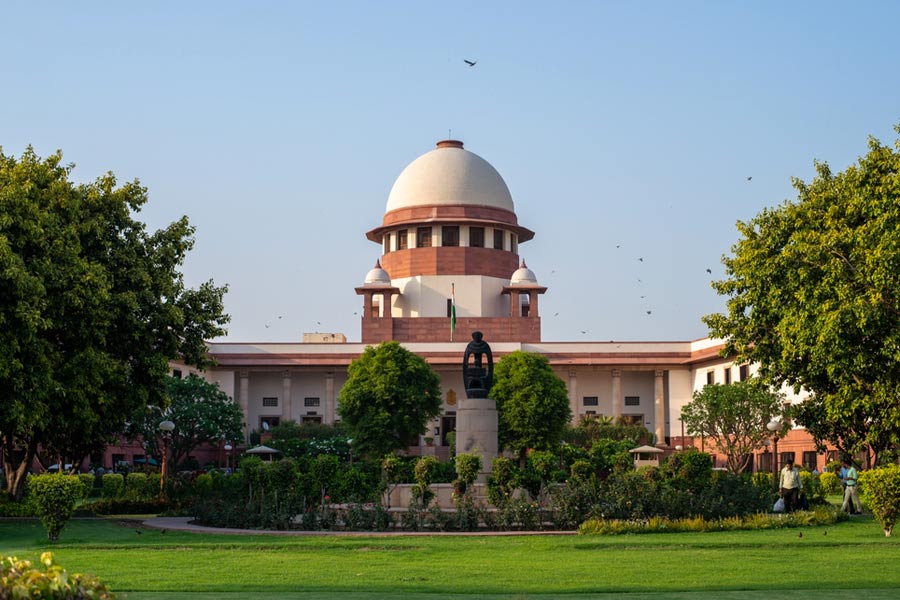The Supreme Court on Monday deferred the hearing on the the Tamil Nadu government's plea alleging delay by Governor R N Ravi in granting assent to Bills passed by the state Assembly to December 1.
The court took note of the fact that the Tamil Nadu Assembly has re-adopted 10 Bills returned by the governor.
“Let us await the decision of the governor (on re-adopted) Bills,” a bench comprising Chief Justice D Y Chandrachud, Justice J B Pardiwala and Justice Manoj Misra said after Attorney General (AG) R Venkataramani, appearing for the Office of the Governor, sought deferment of the hearing.
Taking note of the delay in grant of assent to Bills, the bench said the issue was whether there was a delay in the discharge of the constitutional functions entrusted to the office of the governors.
The bench was responding to the submissions of the AG that the present governor had taken charge on November 18, 2021, and the delay cannot be attributed to the governor as there were many “intricate issues” involved with many Bills.
The senior most law officer referred to one of the Bills which seek to take away the powers of the governor in appointment of vice chancellors in state-run universities.
The bench said at present only five Bills were pending assent before the governor as the Assembly has re-enacted 10 other Bills.
“Once re-passed, the Bills are on the same footing as the money Bill,” the bench said, adding "let the governor take fresh decisions on these re-adopted Bills".
Referring to Article 200 of the Constitution, the bench said the governors can “grant assent/withhold assent or reserve the bill for the president's consideration” and he may return the Bill for reconsideration by the House.
It asked whether the governor can sit over the Bills without sending it either back to the Assembly or to the president and said it may reflect on the issue.
The Tamil Nadu Assembly re-adopted 10 Bills in a special sitting on Saturday, days after those were returned by Governor R N Ravi.
The Bills, covering different departments, including law, agriculture and higher education, were passed in the wake of Ravi returning those on November 13. The re-adopted Bills were later sent to the governor for his assent.
On November 10, describing the alleged delay by the Tamil Nadu governor in giving assent to the Bills as a "matter of serious concern", the top court sought the Centre's response on the state government's petition accusing the Raj Bhawan of "sitting over" 12 legislations.
Issuing notice to the Centre, the top court had sought the assistance of the attorney general or solicitor general in resolving the issue.
"The issues which have been raised in the writ petition raise a matter of serious concern. From the tabulated statements which have been submitted before this court, it appears that as many as 12 Bills which have been submitted to the governor under Article 200 have not elicited any further action.
"Other matters, such as proposals for the grant of sanction for prosecution, proposals for the premature release of prisoners and for the appointment of the members of the Public Service Commission, are pending," it had said.
The governor, by "not signing remission orders, day-to-day files, appointment orders, approving recruitment orders, granting approval to prosecute ministers, MLAs involved in corruption, including transfer of investigation to the CBI by the Supreme Court, Bills passed by the Tamil Nadu Legislative Assembly is bringing the entire administration to a grinding halt and creating adversarial attitude by not cooperating with the state administration," Tamil Nadu government said.
“Declare that the inaction, omission, delay and failure to comply with the constitutional mandate by the governor of Tamil Nadu/first respondent qua the consideration and assent of the Bills passed and forwarded by the Tamil Nadu state legislature to him and the non-consideration of files, government orders and policies forwarded by the state government for his signature is unconstitutional, illegal, arbitrary, unreasonable, besides mala-fide exercise of power," the petition said.
Except for the headline, this story has not been edited by The Telegraph Online staff and has been published from a syndicated feed.











